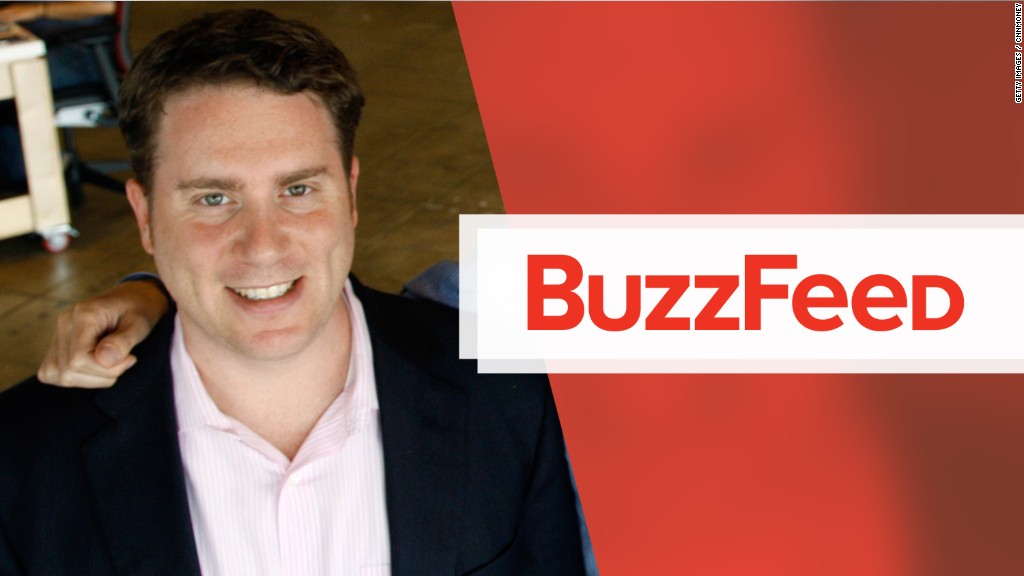
Why did the US government secretly seize information from a reporter while investigating the longtime Senate staffer she had been dating?
Setting aside the issue of the romantic relationship, is the government secretly surveilling other journalists this way?
As CNN's Jake Tapper asked on his program last Friday, is the Trump administration "escalating" the Obama administration's "war on leaks by trampling on the First Amendment for the disclosure of information that isn't even particularly sensitive?"
Press freedom groups have lots of questions following last Thursday's arrest of James Wolfe, the former security director for the Senate Intelligence Committee. He stands accused of lying to FBI agents in December 2017 about his contacts with three reporters -- including Ali Watkins, who currently works at The New York Times.
Watkins was writing for BuzzFeed at the time.
"The story at the heart of this, a great story which nobody has challenged a word or a comma of, was about contacts between Carter Page, the Trump adviser, and a couple of agents of Russian intelligence," BuzzFeed News editor Ben Smith said on CNN's "Reliable Sources" on Sunday.
Smith said "the sourcing in that story is really clear," so "I don't understand why they would be going hunting after a leaker for this story. And also, I don't understand why they think this ought to be secret."
Smith declined to say whether he knew that Watkins was in a relationship with Wolfe when she wrote the story.
When asked if it is appropriate for a reporter to date a source, Smith said "you're making an assumption about who Ms. Watkins' source was in the story that, by the way, isn't asserted in the indictment."
In other words, the government isn't alleging that Wolfe fed Watkins classified information. But the indictment does go into detail about the relationship, which it says ended in 2017.
This is "a conversation the Department of Justice wants us to be having," Smith said, asserting that the government wants people talking about Watkins' personal life instead of "what impelled them to use this kind of last-resort tool of covertly spying on journalists."
The indictment, however, alleges that FBI agents caught Wolfe lying about his contacts with Watkins, making the relationship a relevant part of the case. It also quotes a message Wolfe sent to Watkins last December, apparently obtained by the FBI from Wolfe's phone. "I always tried to give you as much information that I could and to do the right thing with it so you could get that scoop before anyone else," he wrote, according to the indictment.
The government did not obtain the contents of Wolfe's communications, but did obtain years' worth of her phone and email logs, which is what makes this case so concerning to First Amendment advocates.
Smith pointed out that the Obama Administration similarly obtained reporter phone logs years ago, "and later said they regretted it."
Trump seems unlikely to harbor any regrets. He has been demanding prosecutions of leakers ever since he took office 18 months ago.
"This could be the beginning of an escalation. They could be looking at other reporters' phone records. We don't have any way of knowing that," Smith said, echoing what other press advocates have pointed out.
Attorney General Jeff Sessions said last year that the DOJ was investigating 27 leaks of classified information.
On "Reliable Sources," Smith spoke in defense of reporters like Watkins "doing independent reporting and talking to patriotic government officials who want the American people to know what their government is doing."
Sometimes "leaks" are really just anonymously shared bits of information from government officials who have permission to share it. Other times "leaks" come from full-blown whistleblowers who are trying to alert the public to malfeasance.
"And in that broad middle," Smith said, "is people just telling the truth about what your government is doing," sometimes by telling "expert careful reporters."
"And that is how we have learned about these things for as long as you and I have been alive," he added.
Related: Veteran of Senate Intel Committee charged with lying to investigators in leak investigation
President Trump reacted to Thursday night's arrest by saying on Friday that they "caught a leaker." However, Wolfe has not been charged with leaking at this time.
Wolfe was released from custody Friday. He is expected to appear in court again on Tuesday.
Watkins was notified in February about the seizure, according to The Times.
The newspaper said that Wolfe "helped her with articles," but "Wolfe was not a source of classified information for Ms. Watkins during their relationship, she said."
The Wolfe indictment indicated that he had contacts with three other reporters. A Justice Department official told CNN that the other reporters did not have their phone or email records targeted.
But many questions linger.
Tapper raised them on Friday: "Why seize Watkins' phone and e-mail records, all of them, if you're only looking into one of her possible sources?"
He pointed out that the Justice Department was potentially scooping up information about lots of sources. "Are there any safeguards at all here?" he asked. "Or is the Trump administration just blithely combing through the records of a national security reporter?"
He also asked, "How much does President Trump's disdain for the fourth estate play into any of this? How breezily was this done? There's no apparently pressing national security crisis involved. Did anyone even debate this at the Justice Department?"
The Justice Department has said it believed that notifying Watkins ahead of time would have hurt the investigation.


